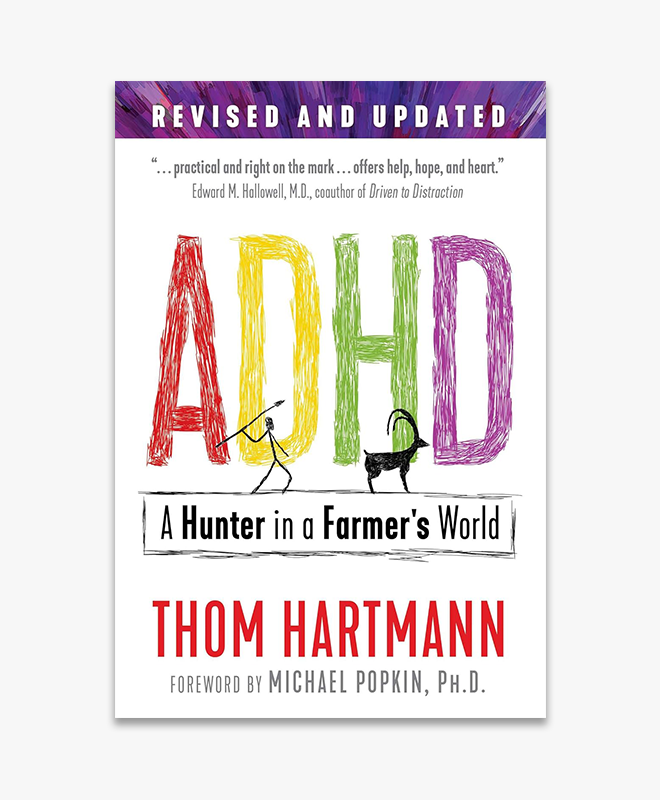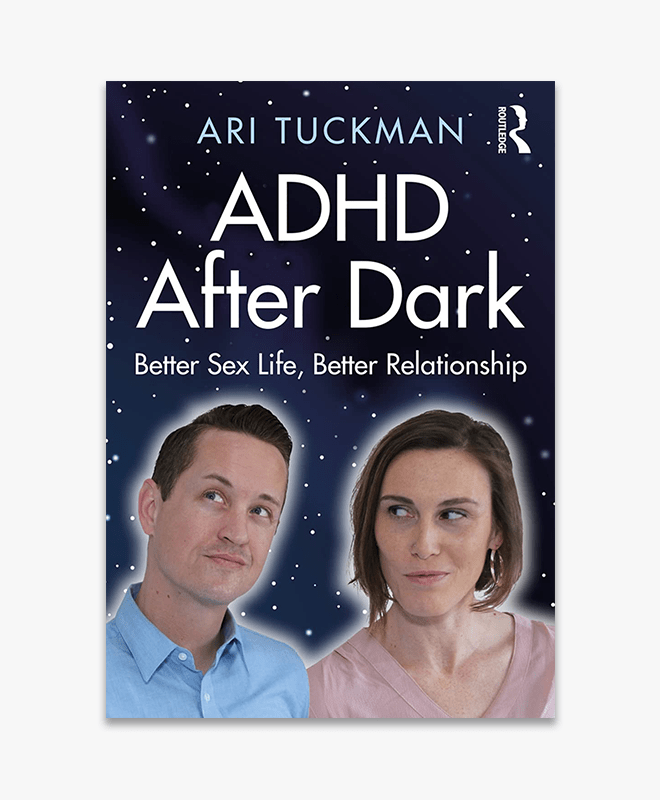“ADHD 2.0 offers a solid strengths-based approach to ADHD, countering the often condescending, negative-symptom focus of the traditional medical model. It provides a fairly updated view of a uniquely wired brain, with a nice balance of scientific insights and personal stories. I find it helpful to refer to my clients, as it includes practical elements like a list of paradoxical ways ADHDers experience the world. This is one example of how the authors help normalize the unique experiences of neurodivergence.” —Kat Herbinson, RCC, founder and clinical director of The ADHD & Relationship Centre in Victoria, British Columbia, Canada
19 Books Everyone With ADHD Should Read
Solid recommendations that will actually keep your attention.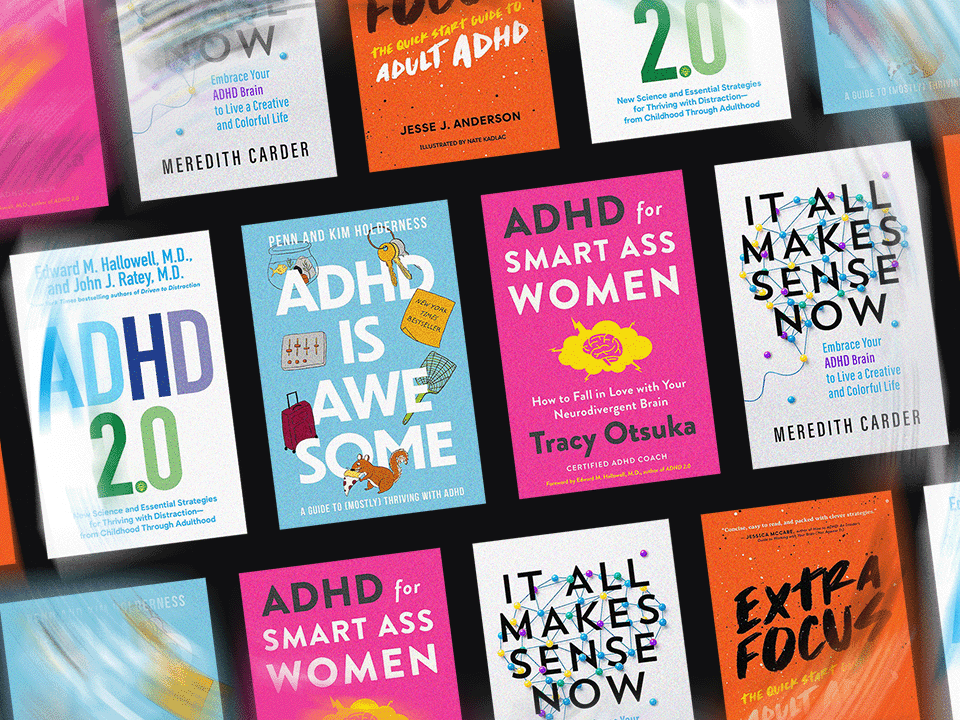
There’s something about getting diagnosed with ADHD (and having an ADHD brain) that makes you want to devour every book ever written on the topic. At least, that’s how I felt this summer when I was diagnosed: Suddenly consumed by an insatiable appetite to learn whatever I could about something I’d been living with my whole life—but honestly knew very little about.
Except, I quickly found out that a lot of ADHD books kind of suck. The writing is often dense and dry. Or the chapters are so long that they’re hard to get through. (Know your audience, people!) Or they just didn't resonate with my personal experience of ADHD.
I must’ve bought and returned half a dozen ADHD books that either bored me to death or just didn’t speak to me. I wanted something that was informative, sure—but it also had to be readable, relatable, and engaging. Maybe you can relate to my frustrating search, whether you're newly diagnosed or have known you have ADHD for a long time.
Well, who better to recommend some actually amazing books about ADHD than people who either live with the condition themselves or work closely with people who have it (or both)? I asked ADHDers and ADHD experts for their favorites.
Some of these ADHD books are packed with practical tools or snippets of fascinating science, while others share compassionate reframes or moving personal stories. Many of them are by people who have ADHD themselves. So, if you’re looking for reading material that might help you understand and appreciate your brain a little better, here are some recommendations from people who get it.
-
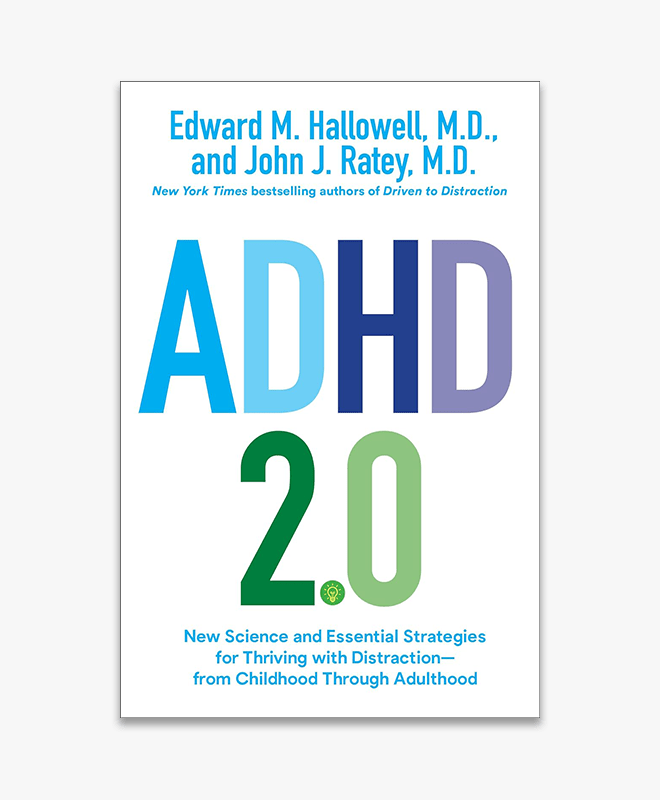
-

“Otsuka comes at ADHD from a very similar angle that I did: As a mom advocating for her child to get a diagnosis who, in the course of that, starts looking back on her own life and recognizing some of those same symptoms in herself. Many women like us fly under the radar our entire lives because we have ‘atypical’ symptoms. So her story of being diagnosed as an adult felt very relatable to me. She’s all about reframing neurodivergence in a more positive light. I’m not big on the ‘ADHD is your superpower’ angle, but I do appreciate how she helps you look at the positive aspects that it brings to your life. Are you always the ideas person? Are you incredibly creative? Are you really empathetic? Are you great under deadline? Those kinds of things.” —Leslie A., 48
-
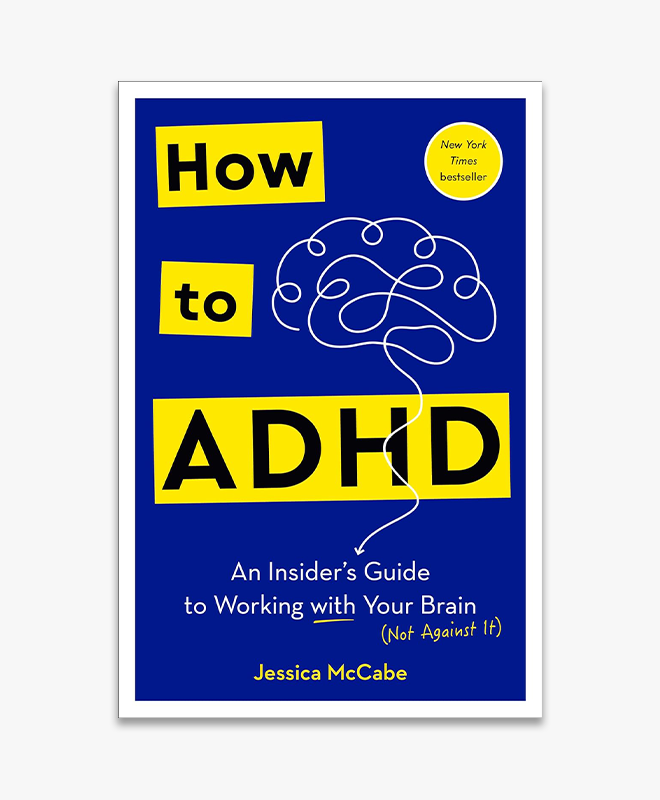
“This book by YouTuber and ADHDer Jessica McCabe is like a conversation between friends. When she shares her personal stories, you relate to her and realize that you’re not the only person having these problems. It helped me feel less alone. It’s also quite humorous—so unlike some complicated medical books about ADHD, it’s way more pleasant to read. I’m thankful for the structure too: Every chapter is divided into sections, so you can skip to the part you’re most interested in. I particularly like the toolbox section, where other people with ADHD share tips and tricks that worked for them. It gives you multiple options—so if one tool isn’t working for me, I can try another.” —Margarida M., 22
-
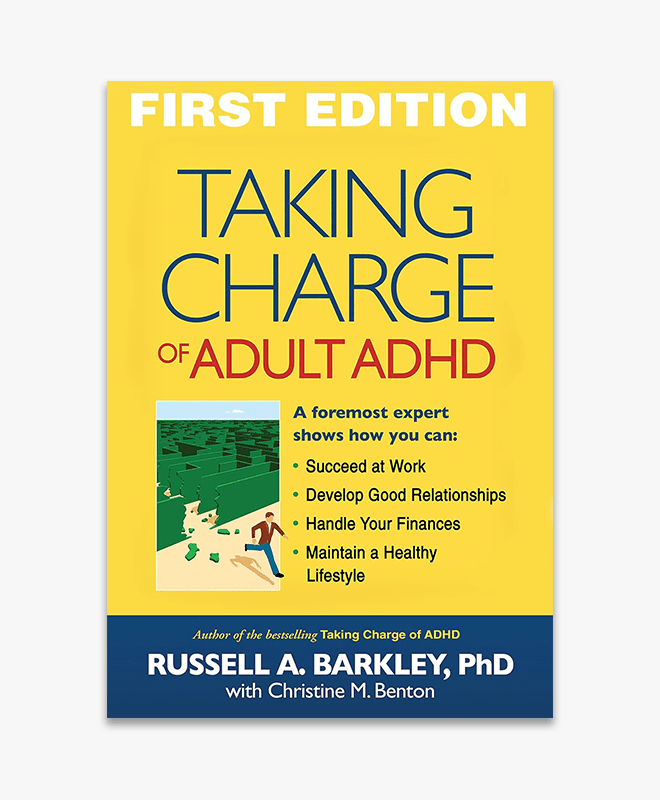
“I first encountered Dr. Barkley’s model of ADHD and the executive functions back when I was in grad school. This is a great resource, because it’s got really good research-backed strategies that can actually help you, like, tomorrow. It’s scientifically sound, but it’s very readable and very accessible. He doesn’t over-explain it. The early chapters talk more about the theories and science behind it if you want to understand that more, but you’re not bogged down by it throughout the entire book.” —Cheryl Chase, PhD, a clinical psychologist specializing in learning and attention disorders based in Independence, Ohio
-
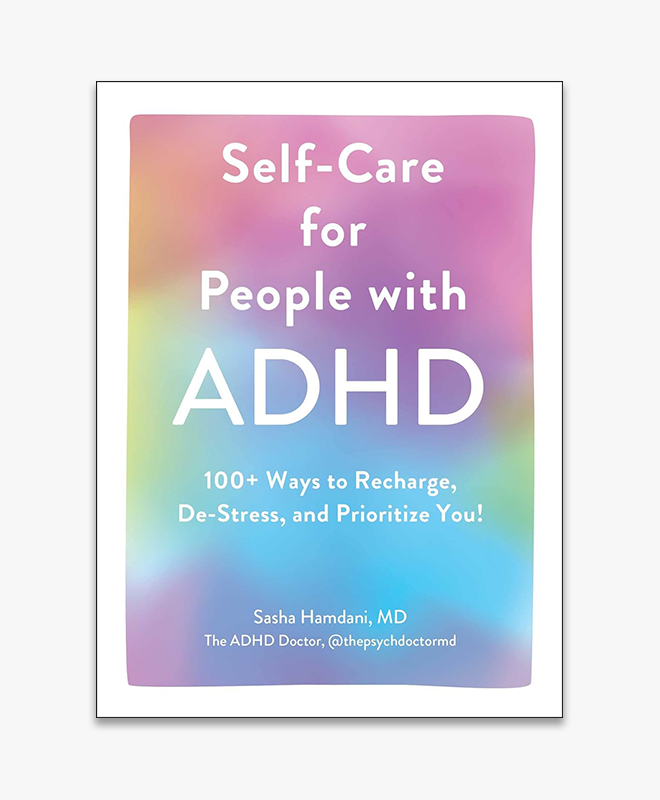
“This self-help book is perfect for someone who is trying to make active changes in their life and looking for realistic tips and self-care practices. She pairs everyday actions with why they are helpful for people with ADHD. Dr. Hamdani is witty and vulnerable, and it feels like a friend is giving you encouraging advice and explaining how it’s worked for her. This book is such an easy read. I love flipping through the pages and finding something to try that day. I can always find something new to take away. It’s a great reminder to take care and prioritize your own self-care.” —Katie White, ADHD advocate
-
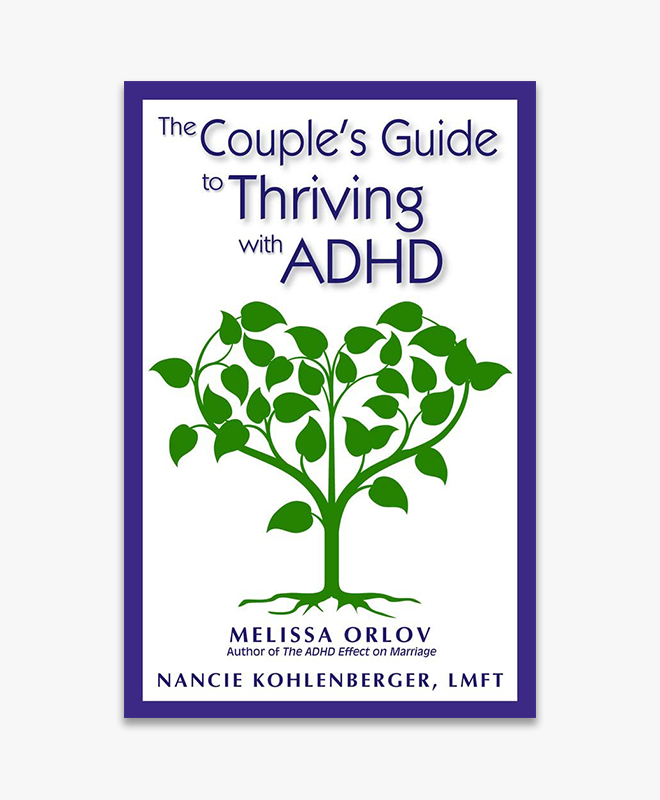
“Celebrating the strengths of ADHD is really important, especially for couples. The authors focus on highlighting the strengths of the partner with ADHD, like creativity or problem-solving. Getting that reassurance and appreciation from your partner for the things you do well—instead of feeling like you’re always getting criticism for being late or messy—is really good for the relationship. So much of ADHD literature is about what to fix. I love that these authors also prioritize celebration.” —Rachel Honig, MHC-LP, a counselor specializing in ADHD based in New York City
-
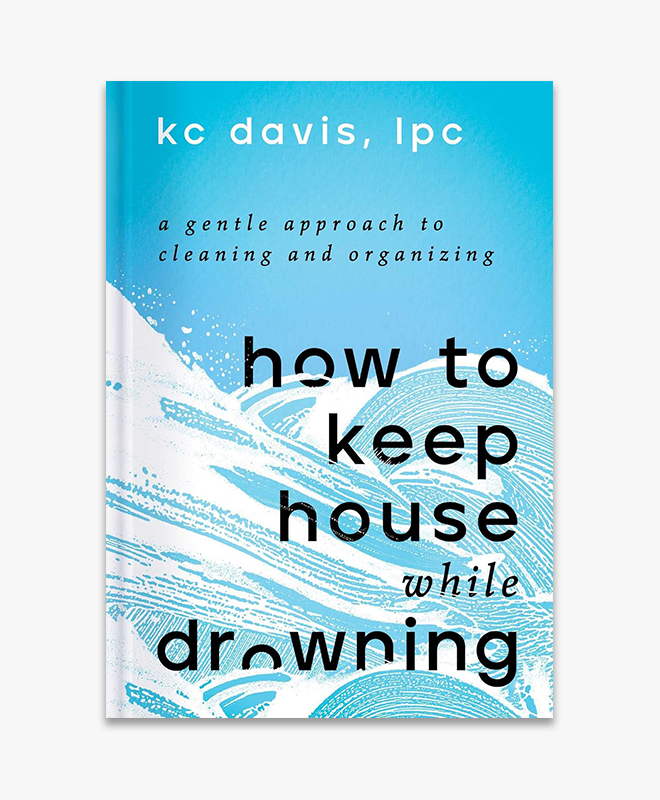
“With the hundreds of to-dos that we have with work and family and everything, it’s hard enough for someone who has five-star executive functioning to keep their head above water. So how do you do it when you’ve got executive functioning challenges? This book is full of actionable tips. The underlying theme is self-compassion. Not setting too-high expectations, and not beating yourself up if your house doesn’t look like it’s ready to be in a photo shoot. One of her taglines is that messiness is not a moral failing. Like, if there are dishes in the sink at the end of the night, that’s fine. Unless it upsets you, in which case she gives you ways to address that.” —Leslie A., 48
-
“I think I found this in a used bookstore, and the premise seemed interesting—to think about ADHD in an evolutionary way. The author does a good job of outlining the difference between ADHD ‘Hunter’ traits vs. the more neurotypical ‘Farmer’ traits. I had never heard of it framed that way before, but it felt true on so many levels and made a lot of sense. Most of all, it felt empowering to see my ADHD that way instead of pathologizing it as a disorder. Like, Fuck yeah, I’m a hunter! He also points to examples of historical figures who likely had ADHD and present-day people who have been diagnosed, and talks about how their ADHD has contributed to their success.” —Kathy Z., 37
-
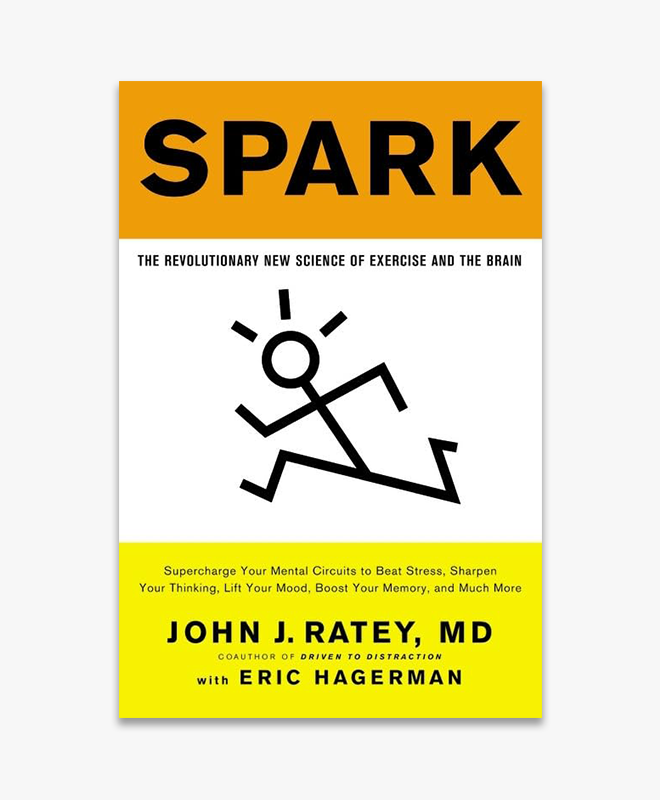
“This is about the fascinating research into exercise and its effects on the brain, and it has a chapter specifically about ADHD. I recommend it to clients all the time. The research is pretty definitive about exercise being a huge boon for ADHD brains. That’s the major take-home message, but it’s even more fascinating when you dive into it deeper as well—the different types of exercise and how they impact the brain differently, and even the timing of different types of exercise in relationship to productivity.” —Marcy Caldwell, PsyD, a clinical psychologist specializing in ADHD and founder of The Center for ADHD in Philadelphia
-
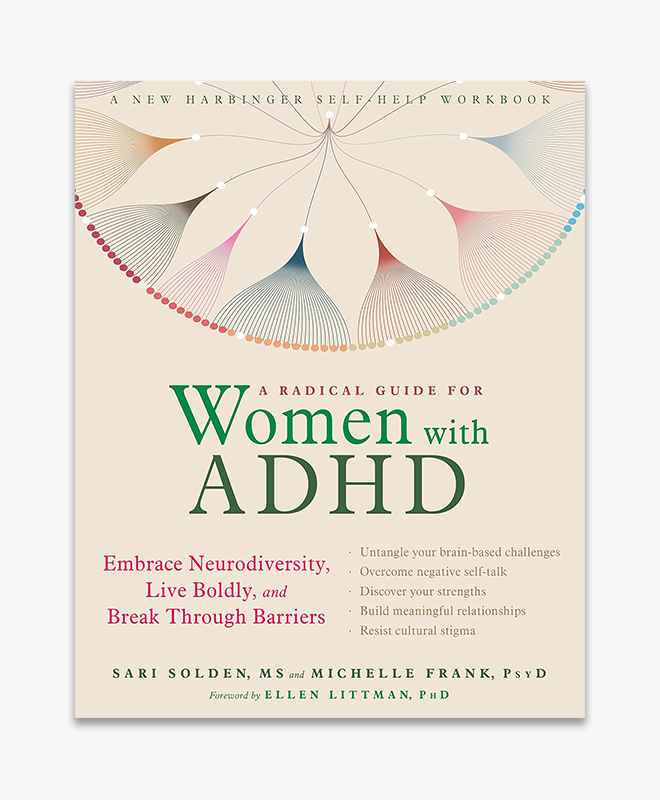
“This workbook offers key insights about how ADHD symptoms in women can differ and why women are often diagnosed later in life. It examines how women experience the symptoms and effects of ADHD and offers helpful exercises to increase understanding and coping skills. The book offers real life stories and relatable examples too. It’s one I recommend to clients.” —Sharon Saline, PsyD, a clinical psychologist specializing in ADHD, anxiety, and learning differences based in Northampton, Massachusetts
-
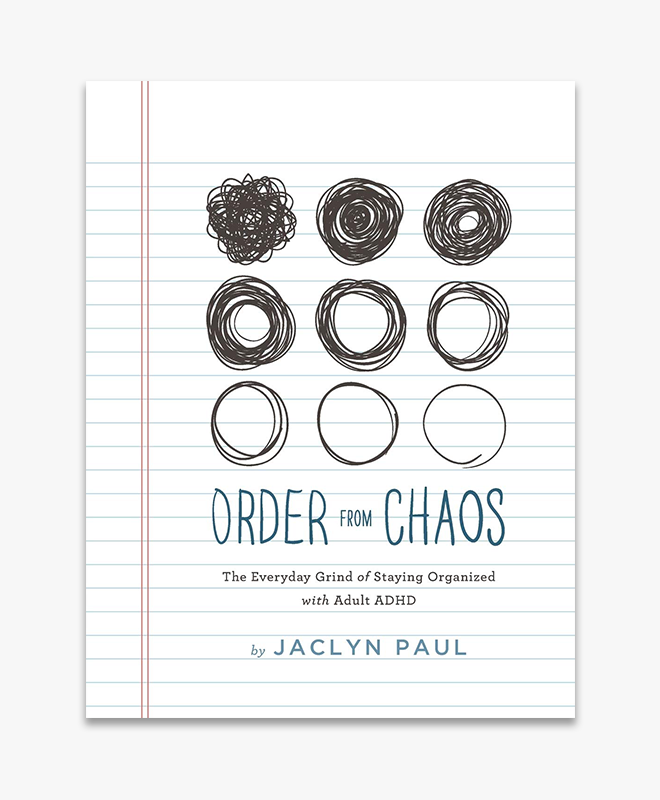
“I highly recommend this book to anyone looking to organize and declutter in a way that works for ADHD brains. If the Marie Kondo method left you feeling overwhelmed and frustrated, you’re not alone. Many of my ADHD clients experience deep shame and self-judgment because their spaces aren’t perfectly neat or tidy. The truth is, most organizing tips were designed by and for neurotypical minds. This book shifts that narrative. It encourages us to clean and organize differently, letting go of Martha Stewart-level perfectionism and embracing more realistic, ADHD-friendly approaches (like visual systems). There are also practical tips for tackling digital clutter, like managing that overflowing email inbox. Pro tip: Listen to the audiobook while you declutter so you can apply the strategies in real-time. Tackling it chapter by chapter helps you avoid the hyperfocus trap of marathon cleaning sessions.” —Liz Slonena, PsyD, an ADHD psychologist and founder of Mindful Hypnosis Counseling & Consulting in Asheville, North Carolina
-
“If you’re looking for a quick startup guide for all things ADHD, I highly recommend this book. Jesse wastes no time in this quick read, going over a lot of helpful tips and tricks to manage your ADHD. What makes it really stand out to me is the sheer quantity of tips in such a small book. It’s definitely worth reading.” —Andrew Robinson, LCSW, a therapist specialized in ADHD and autism and owner of Neurospicy Counseling in Missouri
-
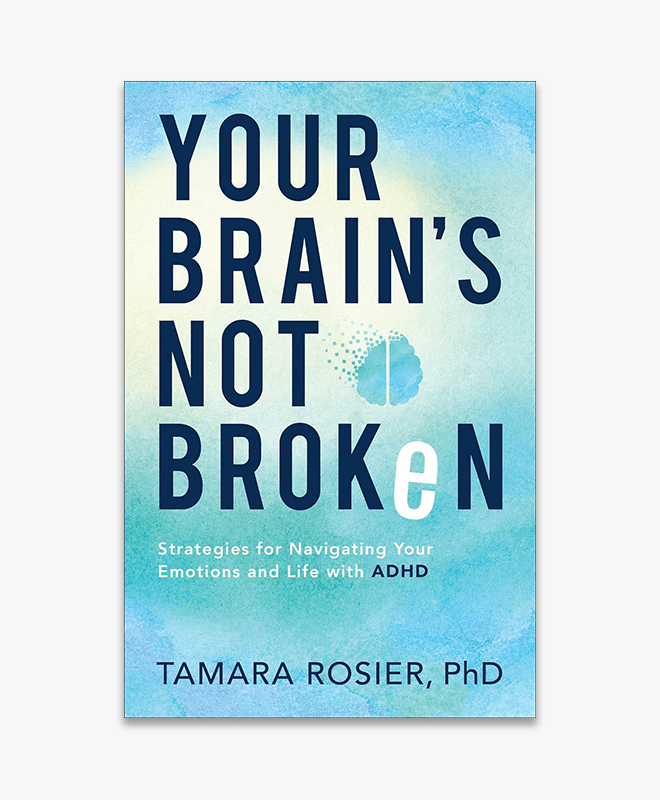
“This is the first book I ever read about ADHD. I re-listen to it on Audible about once a year, when I need a refresher or just feel down or misunderstood about my diagnosis. It’s a deep dive into ADHD and the feelings and impact that come along with it. Tamara is a great storyteller, and every line feels like she took it from a personal experience of mine. She is also a mother of neurodivergent children and can speak to that perspective as well. This book always leaves me feeling so much more empowered about my brain, and every time I read or listen to it I learn or relate to something even more.” —Katie White, ADHD advocate
-
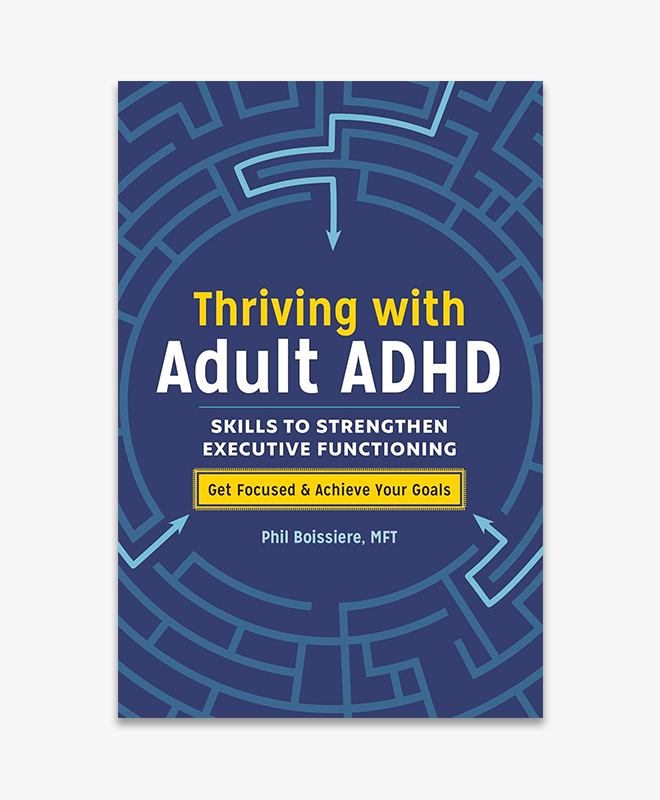
“This one is probably not the trendiest selection—but of all the books out there, it’s often my go-to. It’s laid out really well and has really good ‘snackable’ content, so it’s not too dense and it doesn’t overwhelm people. It’s very tip-based and has a lot of exercises and homework for things to practice.” —Rachel Honig, MHC-LP, a counselor specializing in ADHD based in New York City
-
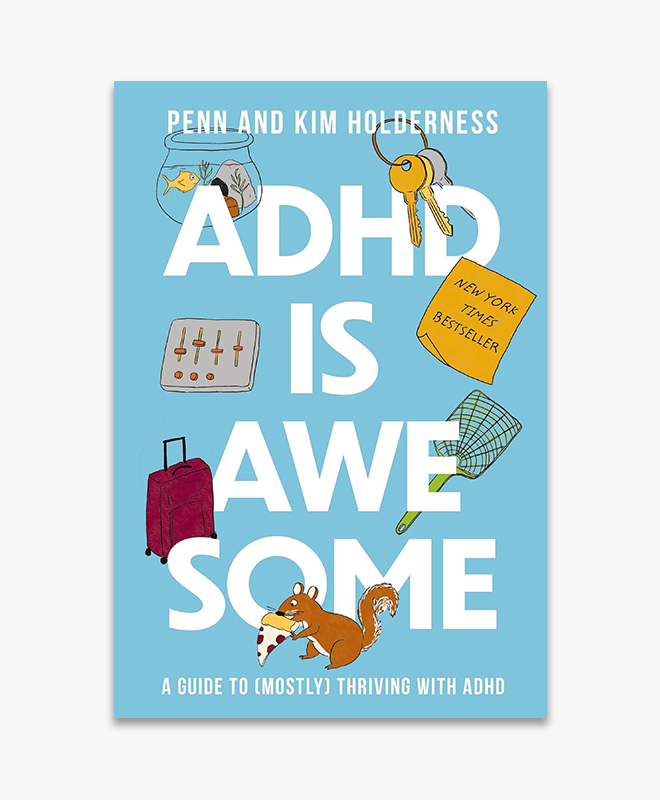
“After reading numerous books on the topic, I discovered that ADHD Is Awesome provided a very enlightening approach on how to deal with my own condition. Penn and Kim take you on a deep dive into their adventures (and misadventures) while providing practical tips on how you or your loved ones can thrive with ADHD. I suggest listening to the audiobook at least once, as it feels more like being a part of a comedic podcast.” —Colin M., 49
-
“ADHD After Dark examines the impact of ADHD on sexual intimacy and relationships, and it’s by my all-time favorite ADHD author, Ari Tuckman. It’s a research-backed look at the emotional, physical, and communication differences between ADHD and non-ADHD partners, and offers practical strategies for dealing with these differences. I love Ari’s books because of their compassionate and accessible tone that takes complicated research and makes it easy to understand and make use of.” —Marcy Caldwell, PsyD, a clinical psychologist specializing in ADHD and founder of The Center for ADHD in Philadelphia
-
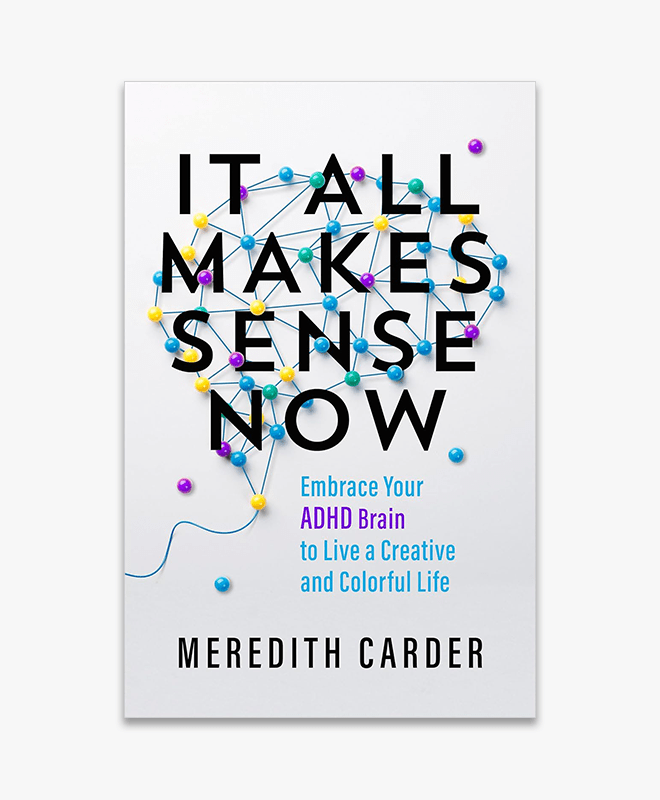
“Meredith offers an honest look into all things ADHD—from personal anecdotes to stories from members of her community. She sheds light on a lot of the hot topics surrounding ADHD, like people pleasing, working memory, and rejection sensitive dysphoria. And she provides great strategies and tips in the book as well. You don’t want to miss this one.” —Andrew Robinson, LCSW, a therapist specialized in ADHD and autism and owner of Neurospicy Counseling in Missouri
-
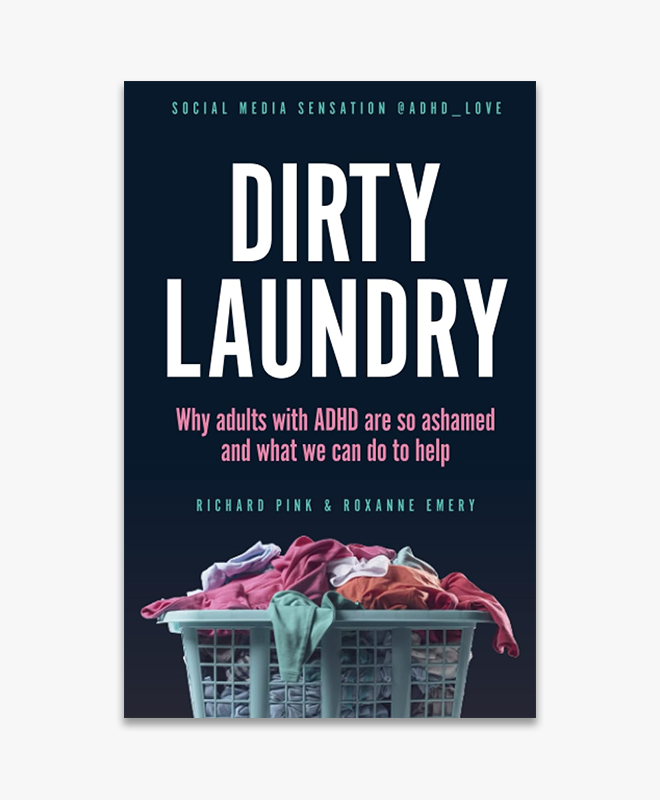
“This book is written by a couple. It’s about their journey of discovering that Roxanne has ADHD, and how they learned to manage the challenges that may come with it. I loved the real-life examples that I could relate to, which helped me feel seen and understood. They also share many ideas to help navigate relationships—whether you have ADHD yourself, or are the neurotypical partner trying to understand your loved one who has ADHD.” —Shane B., 51
-
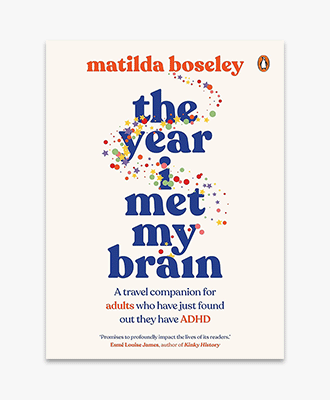
“Boseley approaches her adult ADHD diagnosis from a journalist’s point of view. She reflects back on her life and is watching everything fall into place. It has deep dives into science, but it’s also funny and relatable, and has an emphasis on self-compassion. She does a really good job of talking about how to get over the feeling of failure that so many of us have, as well as how having ADHD can impact your relationships with people—your partner, your parents, your colleagues. It’s like an introduction to a part of yourself that you haven’t understood, but now you’re finally starting to get a grasp on.” —Leslie A., 48
Wondermind does not provide medical advice, diagnosis, or treatment. Any information published on this website or by this brand is not intended as a replacement for medical advice. Always consult a qualified health or mental health professional with any questions or concerns about your mental health.
